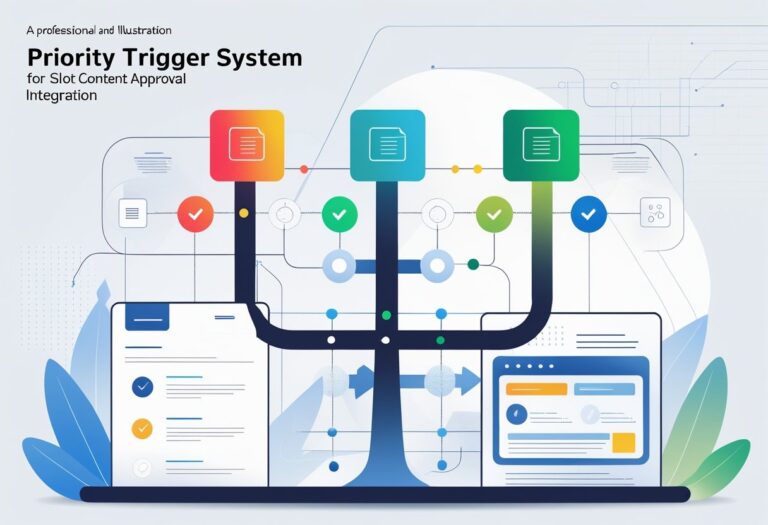🛡 데이터 보호 강화를 위한 정책적 과제
1. 생체 정보 전용 규제 프레임워크 필요
- 기존 필리핀 데이터 프라이버시법(2012)은 생체 정보의 특수성을 충분히 다루지 못함
- 민감 정보에 해당하는 지문, 얼굴, 홍채, 보행 패턴 등은 별도의 법적 기준이 요구됨
- 수집 목적, 보관 기간, 제3자 제공 여부에 대한 명확한 고지 의무화 필요
2. 데이터 보유 및 삭제 프로토콜 수립
- 고객 탈퇴 또는 미방문 일정 기간 경과 시 자동 데이터 삭제 시스템 도입 필수
- 사용자 요청에 의한 삭제 권리(right to erasure) 보장 필요
- 삭제 전 고객에게 투명한 통지 절차와 동의 확인 시스템 제공
3. 독립된 개인정보감독기구의 실질적 권한 강화
- PAGCOR 외부의 독립적 감시기관이 정기적 보안 감사를 실시
- 위반 시 강력한 제재 조치와 벌금 부과 권한 보장
📉 생체 감시 시스템의 위험 요소
1. 감시 피로(Surveillance Fatigue)
- 플레이어가 지속적인 감시 상태를 인지하게 되면 스트레스와 불편함 증가
- 일부 고객은 이러한 감시를 이유로 카지노 방문을 회피할 수 있음
2. 오탐지 및 차별 가능성
- 얼굴 인식 시스템은 인종, 조명, 마스크 착용 등 변수에 따라 오류 발생 가능
- 잘못된 식별로 인해 무고한 고객이 제한 조치 대상이 될 수 있음
3. 고객 신뢰도 하락
- 사용자 동의 없이 행동 패턴 및 선호도 분석이 이루어질 경우 프라이버시 위협 인식 증가
- 프리미엄 고객층은 사생활 침해에 민감하게 반응 → 브랜드 이미지 훼손 위험
🌐 글로벌 기준과 필리핀의 비교
🇸🇬 싱가포르
- 생체 정보 수집 시 사전 고지 + 명시적 동의 필요
- 데이터는 분리 보관 + 고급 암호화 적용
🇰🇷 대한민국
- 생체 정보는 정보주체의 서면 동의 없이는 수집 금지
- 법적 분쟁 시 기업 측이 수집 필요성을 입증해야 함
🇵🇭 필리핀
- 개인정보 보호법은 존재하나, 생체 정보에 대한 세부 집행지침 미비
- 카지노 관련 생체 데이터는 대부분 PAGCOR 내부 규정에 의존
🚨 대중의 반응과 사회적 논쟁
1. 온라인 여론과 반발
- 카지노 고객 포럼, SNS 등을 통해 ‘프라이버시 침해’ 우려 급증
- “도박 추적이 아닌, 감시 국가로 가고 있다”는 비판적 담론 형성
2. 언론 보도 및 NGO 반응
- 현지 시민단체 및 언론이 개인정보 저장 방식의 불투명성을 문제 제기
- 일부 NGO는 생체 감시 시스템을 ‘강제적 감시경제의 확장’으로 규정
🔐 결론: 기술의 진보가 신뢰를 침해하지 않으려면
필리핀 카지노의 생체 보안 기술은 명백히 보안 수준을 향상시키고, 도박 중독 관리의 새로운 가능성을 제시합니다. 그러나 이 기술이 진정한 진보로 기능하려면 신뢰 가능한 개인정보 보호 시스템과 강력한 투명성이 반드시 동반되어야 합니다.
생체 정보는 도구일 뿐, 목적이 되어선 안 됩니다. 보안과 사생활의 균형은 선택이 아니라 설계의 원칙이어야 합니다.
📲 생체 데이터와 마케팅의 융합: 새로운 수익 모델
1. 고객 맞춤형 타겟팅
- 플레이어의 생체 데이터를 기반으로 도박 성향, 감정 상태, 선호 시간대 분석
- 해당 정보를 이용해 맞춤형 보너스, 푸시 알림, VIP 초대장 제공
- 고객 체류 시간과 소비량 증가에 기여하지만, 행동 유도형 마케팅으로 변질될 위험 존재
2. 생체 기반 로열티 시스템 구축
- 지문이나 얼굴 인증만으로 자동 포인트 적립, 등급 상향
- 보상 심리 자극 → 도박 행동 강화의 기제로 작용할 가능성
3. AI 추천 시스템과의 통합
- 생체 데이터를 AI 분석 모델에 입력하여 게임 추천, 배치 이동 경로 제시
- 의사결정 개입 가능성 증가 → 플레이어 자율성 침해 논란
⚠️ 생체 정보 유출 사고의 잠재 위험
1. 데이터 탈취 시 치명적 피해
- 지문, 얼굴, 홍채는 변경 불가능한 개인 식별 정보
- 유출 시 영구적 신원 도용, 국제 사기에 악용될 수 있음
- 2022년 기준, 아시아 카지노 2곳에서 지문 해시값 유출 사고 보고됨
2. 사이버 공격 표적화
- 생체 데이터는 금융정보보다 더 높은 거래 가치를 가짐
- 카지노 서버는 해커 그룹의 지속적 공격 대상이 되고 있음
3. 책임 소재의 불명확성
- 생체 데이터 유출 시, 책임 주체가 카지노인지 시스템 공급업체인지 법적으로 불명확
- 고객이 피해를 입어도 보상 기준, 소송 가능성 등이 명시되지 않음
📘 생체 보안 시스템 운영에 대한 윤리적 권고
1. 최소 수집 원칙의 적용
- 홍채, 얼굴, 지문 등 필요 최소한의 정보만 수집
- 추가 정보를 요구할 경우, 목적과 필요성을 사전 고지
2. 명시적 동의 및 옵트아웃(Opt-Out) 옵션 제공
- 고객이 생체 인증을 거부할 수 있는 수단 제공
- 동의는 일반 약관이 아닌 독립된 고지·서명 절차를 통해 수집
3. 투명성 보고서 공개
- 연 1회 생체 데이터 수집, 사용, 제3자 제공 현황을 담은 공식 투명성 보고서 발행
- 고객은 자신의 정보가 어떻게 사용되고 있는지를 객관적으로 확인 가능해야 함
🌐 카지노 외 생체 데이터 활용의 확산
1. 의료·보험사와의 연계 가능성
- 행동 분석 데이터가 심리 평가, 중독 지수 판단에 활용되어 보험 가입 제한 가능
- 자발적 제공으로 포장된 데이터 연동 계약 조항 삽입 사례 증가
2. 정부 기관 협력 문제
- 범죄 추적 목적 외에도 정보기관 요청 시 데이터 제공 가능성
- 개인의 도박 행동이 정부 기록에 반영될 우려
🔚 최종 정리: 기술 중심의 카지노는 ‘신뢰 중심’으로 운영돼야 한다
필리핀 카지노 산업의 디지털 보안 혁신은 단순한 기술 진보가 아닙니다. 그것은 사용자 정보와 정체성을 다루는 사회적 계약의 재정의입니다.
생체 데이터는 고도의 보안 수단이 될 수 있지만, 강력한 규제·윤리·투명성 없이 도입될 경우, 중독 관리가 아니라 감시 자본주의의 도구로 전락할 수 있습니다.
진정한 혁신은 보안을 강화하되, 인간의 권리를 침해하지 않는 방식에서 출발합니다.



